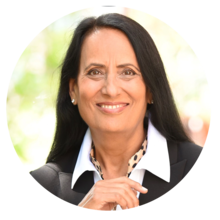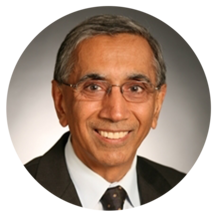About this Presentation
Dr. Goldratt has incorporated the concept of POOGI into the TOC's body of knowledge. Behind this is the Toyota Production System developed by Taiichi Ohno, who is loved by Dr. Goldratt. I n the Toyota Production System (lean production system), just-in-time and autonomation are defined as the two pillars. The foundation that supports these two pillars is the philosophy of three realism and continuous improvement (KAIZEN). Satoru Murakami has been providing consulting services using the TOC method in Japan for 20 years, has taught more than 100 KAIZEN activities and had achieved remarkable results such as Hitachi Tool introduced in Dr. Goldratt's article Standing on the shoulders of giants. Satoru will try to introduce about Japanese styled KAIZEN and difference between other improvements. Actually, it is not well known that the meaning of Improvement and KAIZEN is very different. Improvement means to improve the current situation and make it better. So, in actual improvement activities, there are two types that emphasize, improvement that emphasizes making changes and producing Results and correctly recognizing the current situation Process. How is KAIZEN in TOYOTA rooted in Japanese culture different from improvement? Taiichi Ohno taught his subordinates: If you don't know the true cause, go to the site and see until you find out. This is the essence of the three realism of going to the site, seeing the real thing, and thinking in reality. However, in order for this three realism to work, there are extremely human-like points about how to evaluate people and what kind of relationships should be built between subordinates and bosses. In other words, it is necessary to turn that human beings are evaluated by results, to process including their approach. However, the expression evaluate not may be inappropriate and the expression work together will may be appropriate. This shift from result evaluation to process evaluation also supports that takes a long time to work on, and Japanese-styled KAIZEN activities. This presentation is based on 3rd step of 6 steps SOSOG, ‘Get on the giant’s shoulders. - Gain the historic perspective - understand the giant’s solution better than he did’.
What Will You Learn
To help you get the most value from this session, we’ve highlighted a few key points. These takeaways capture the main ideas and practical insights from the presentation, making it easier for you to review, reflect, and apply what you’ve learned.

Improvement and manufacturing are not the same. Improvement is a daily activity and not limited to a specific period.
The three realities principle (Genchi Genbutsu) is a key concept in Toyota's manufacturing process.
Incorporating TOC in educational equipment can yield better results than traditional improvement methods.
Instructor(s)
Satoru Murakami
Satoru Murakami was responsible for cost accounting in a major manufacturing industry. After that, he was the chief consultant of the TOC department at the Japan Management Association. He established Goal System Consulting Co., Ltd. in 2002 and became CEO. International Production Research Journal The paper "Application of TOC in Japanese Industry-The Case of Hitachi Tools (2006)-" was quoted directly in his paper is Dr. Goldratt's last paper "Standing on the shoulders of giants (2008)". Chairman of Japan TOC Advancing Committee (2005-2016) Lecturer, Faculty of Engineering, Hosei University (2003-2013) 2009 TOCICO Regional Award.

Ms Alka Wadhwa
Alka Wadhwa is an experienced consultant and process improvement expert with over 24 years of expertise in the Theory of Constraints (TOC), Lean Six Sigma, and organizational performance optimization. She has successfully led projects in healthcare, financial services, and manufacturing, driving significant improvements such as a 67% boost in hospital operations and a 140% increase in outpatient visits.
Previously, Alka Wadhwa spent 17+ years at GE Global Research Center, where she led initiatives to enhance various GE businesses through advanced technologies, process redesign, and system optimization. Founder of Better Solutions Consulting, LLC, she specializes in using TOC, Six Sigma, and data analytics to streamline operations and build high-performance teams.
Her work has earned her multiple accolades, including the Empire State Award of Excellence in healthcare.

Dr Gary Wadhwa
Dr. Gary Wadhwa is a Board Certified Oral & Maxillofacial Surgeon with extensive experience in the field. He completed his Oral & Maxillofacial Surgery training at Montefiore Hospital, Albert Einstein College of Medicine in Bronx, NY, and has served as an Attending at prestigious institutions like St. Peters Hospitals, Ellis Hospital, and Beth Israel Hospital in NY. With a career spanning over two decades, he was the former CEO and President of a group specialty practice in NY from 1994 to 2015. Dr. Wadhwa holds an MBA from UT at Knoxville, TN, and has undergone additional training in System Dynamics at MIT, Health System Management at Harvard Business School, and Entrepreneurship and healthcare innovations at Columbia Business School. Committed to expanding access to Oral & Maxillofacial Surgery care, he is currently engaged in a meaningful project to provide healthcare services to underserved populations in inner city and rural areas through non-profit Community Health Centers.
